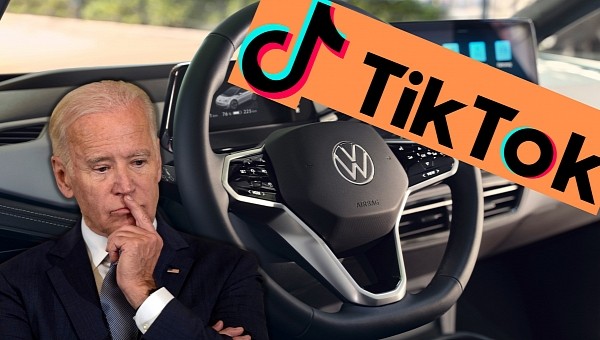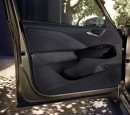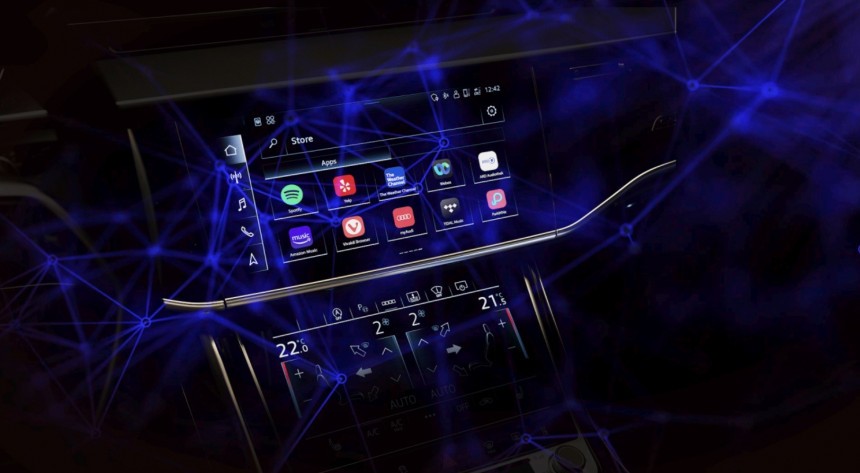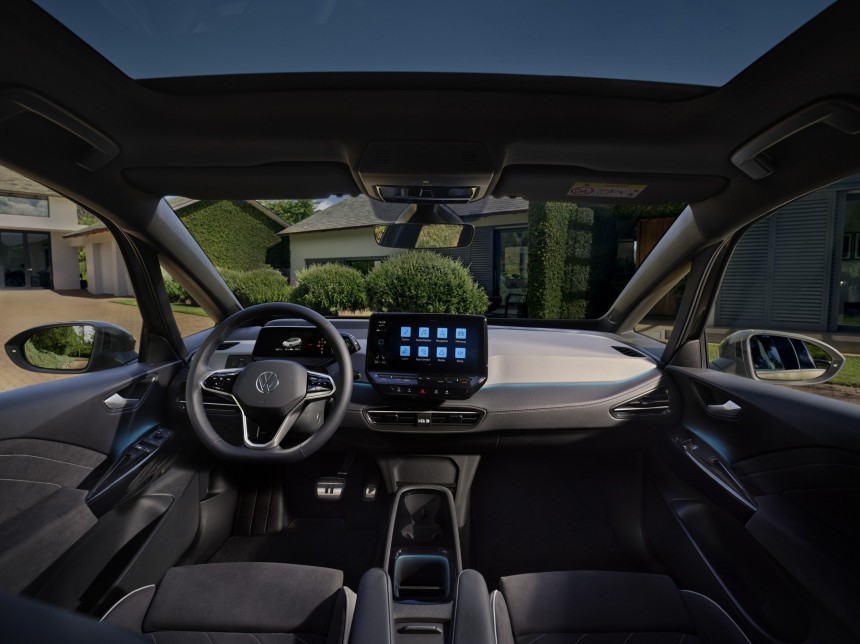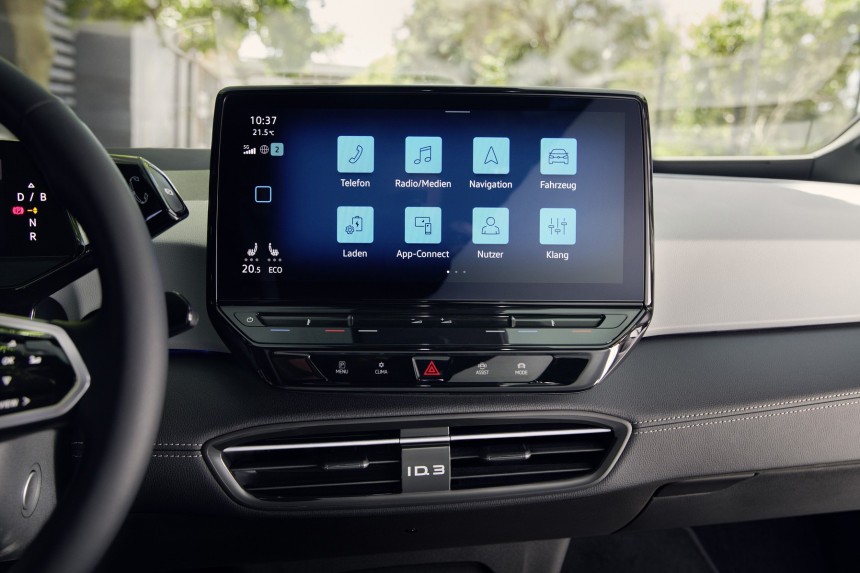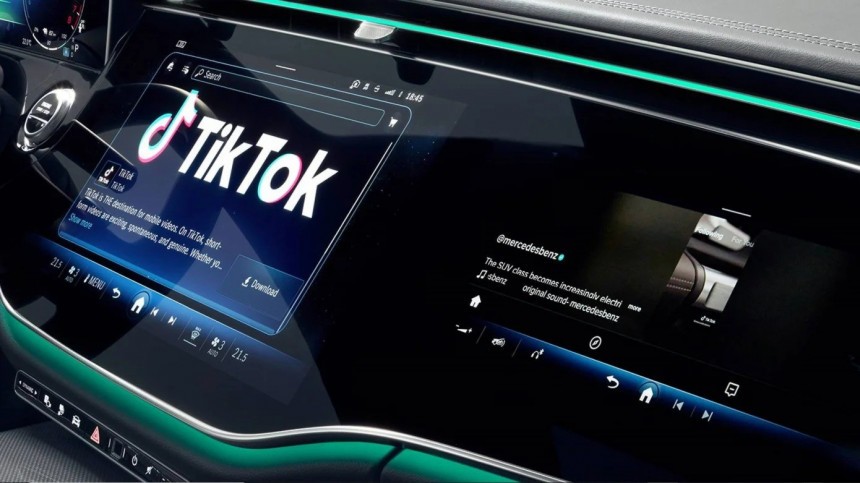Volkswagen Group vehicles will come with an in-house app store developed by Cariad, and one of the key app partners is the controversial social media phenomenon TikTok.
Announced this week at MWC, in Barcelona, the app store is the work of VW Group’s software unit Cariad. It will make its way to vehicles manufactured by all brands in the group, starting this summer with Audi.
The app store will be the home of both first- and third-party apps. VW says all vehicles in the group will use it eventually, including not only cheap Skoda models, but also expensive Porsches. The carmaker hopes the huge number of vehicles running the app store would serve as an incentive for developers to bring their apps to the platform.
Initially, the app store will launch this summer on select Audi models with a limited number of supported categories, such as music, video conferencing, weather, parking, gaming, EV charging, and news. More apps would follow shortly, including navigation solutions.
VW Group says it has specifically worked with several companies to prepare for the launch of the platform. Spotify, Vivaldi, Yelp, and TikTok are some of the biggest names.
No proof has been provided, but eventually, TikTok ended up being banned on government devices.
The latest country to do it is Canada, as the local authorities have requested the removal of TikTok from government-issued devices.
Officials said the app “presents an unacceptable level of risk to privacy and security,” adding that the ban is just a precaution.
TikTok continues to be available on consumer devices, but authorities recommend individuals to take into account the privacy risks that are involved with using an app from a Chinese company.
With a car-optimized experience specifically aimed at drivers and passengers, TikTok helps Volkswagen target young drivers who account for an important share of the app’s user base.
The carmaker is fully aware of the controversy surrounding TikTok. This is why the application comes with several restrictions in place, including limitations to how users will interact with TikTok.
The application will only allow browsing the existing content, as creating and uploading videos will be blocked. Volkswagen cars don’t come with a selfie camera that would allow such activities, but the German group says its main intention is to only allow drivers and passengers to consume content.
Of course, TikTok will be blocked when the vehicle is in motion. VW says that by design, third-party apps installed from the new store are not allowed to write any files to the software that powers the vehicle.
Just like in the case of VW, Mercedes will only allow passengers to watch TikTok content when the vehicle is parked. The app will run on the display on the dashboard, as well as on the rear-seat infotainment system for passengers traveling in the back.
Mercedes did not detail the restrictions that it put in place to limit the access of the app to its software, but for now, uploading content is also blocked. However, the company’s CEO acknowledged the popularity of TikTok, explaining that the app is “very, very relevant” right now, especially in China.
The S-Class is particularly popular for customers aged 40 or even lower, Mercedes says, and this age group is believed to consume TikTok content on a daily basis.
Regarding the ban, TikTok says no evidence has ever been offered on any possible ties with the Chinese government. That said, the company believes the bans are unfounded, emphasizing that it’s willing to collaborate with officials on ensuring the privacy and security of users.
India banned TikTok on consumer devices back in 2020 citing national security concerns. Several other countries followed in India’s footsteps and announced similar restrictions, including Indonesia and Pakistan.
The United States is yet to announce a full ban on TikTok, but local officials are currently insisting on removing the app from government-owned devices.
TikTok’s expansion in vehicles could, therefore, cause new concerns in countries where the offensive against the Chinese service gains traction, but so far, none of the involved parties discussed banning the app in cars.
The app store will be the home of both first- and third-party apps. VW says all vehicles in the group will use it eventually, including not only cheap Skoda models, but also expensive Porsches. The carmaker hopes the huge number of vehicles running the app store would serve as an incentive for developers to bring their apps to the platform.
Initially, the app store will launch this summer on select Audi models with a limited number of supported categories, such as music, video conferencing, weather, parking, gaming, EV charging, and news. More apps would follow shortly, including navigation solutions.
VW Group says it has specifically worked with several companies to prepare for the launch of the platform. Spotify, Vivaldi, Yelp, and TikTok are some of the biggest names.
The TikTok controversy
TikTok has become an Internet phenomenon, as the adoption of the service skyrocketed in the last years. The parent company, however, has been accused of ties with the Chinese government, with American officials claiming TikTok could be used to harvest user data.No proof has been provided, but eventually, TikTok ended up being banned on government devices.
The latest country to do it is Canada, as the local authorities have requested the removal of TikTok from government-issued devices.
Officials said the app “presents an unacceptable level of risk to privacy and security,” adding that the ban is just a precaution.
TikTok continues to be available on consumer devices, but authorities recommend individuals to take into account the privacy risks that are involved with using an app from a Chinese company.
TikTok on VW cars
The launch of the social media service in VW Group’s vehicles, therefore, comes at a time when TikTok is under heavy fire from governments across the world.With a car-optimized experience specifically aimed at drivers and passengers, TikTok helps Volkswagen target young drivers who account for an important share of the app’s user base.
The carmaker is fully aware of the controversy surrounding TikTok. This is why the application comes with several restrictions in place, including limitations to how users will interact with TikTok.
The application will only allow browsing the existing content, as creating and uploading videos will be blocked. Volkswagen cars don’t come with a selfie camera that would allow such activities, but the German group says its main intention is to only allow drivers and passengers to consume content.
Of course, TikTok will be blocked when the vehicle is in motion. VW says that by design, third-party apps installed from the new store are not allowed to write any files to the software that powers the vehicle.
Mercedes adopting TikTok as well
VW isn’t the only carmaker that brings TikTok to its vehicles. Back in February, Mercedes also announced that TikTok will be a first-class resident of its new operating system, called MB.OS.Just like in the case of VW, Mercedes will only allow passengers to watch TikTok content when the vehicle is parked. The app will run on the display on the dashboard, as well as on the rear-seat infotainment system for passengers traveling in the back.
Mercedes did not detail the restrictions that it put in place to limit the access of the app to its software, but for now, uploading content is also blocked. However, the company’s CEO acknowledged the popularity of TikTok, explaining that the app is “very, very relevant” right now, especially in China.
The S-Class is particularly popular for customers aged 40 or even lower, Mercedes says, and this age group is believed to consume TikTok content on a daily basis.
TikTok response
Despite government bans, TikTok is trying to do business as usual, and its expansion in the automotive industry helps reach more potential customers.Regarding the ban, TikTok says no evidence has ever been offered on any possible ties with the Chinese government. That said, the company believes the bans are unfounded, emphasizing that it’s willing to collaborate with officials on ensuring the privacy and security of users.
India banned TikTok on consumer devices back in 2020 citing national security concerns. Several other countries followed in India’s footsteps and announced similar restrictions, including Indonesia and Pakistan.
The United States is yet to announce a full ban on TikTok, but local officials are currently insisting on removing the app from government-owned devices.
TikTok’s expansion in vehicles could, therefore, cause new concerns in countries where the offensive against the Chinese service gains traction, but so far, none of the involved parties discussed banning the app in cars.
